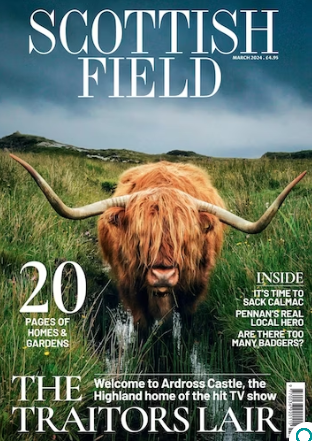Rural organisations have said that the recommendations of a government-commissioned review of grouse moor management will mean a ‘seismic’ change for grouse moors across Scotland.
The Grouse Moor Management Group was established in November 2017, to examine the environmental impact of grouse moor management practices such as muirburn, the use of medicated grit and mountain hare culls, and advise on the option of licensing grouse shooting businesses.
The group, chaired by Professor Alan Werritty, submitted its final report to the Cabinet Secretary for Environment, Climate Change and Land Reform, Roseanna Cunningham MSP
Following publication of the review group’s report, a joint statement was issued by British Association for Shooting and Conservation, Scottish Countryside Alliance, Scottish Gamekeepers’ Association, Scottish Association for Country Sports and Scottish Land and Estates.
Their statement said: ‘The recommendations of the Werritty Review will mean a seismic change for grouse moors across Scotland.
‘This report has recommended a barrage of measures that will leave the grouse shooting sector engulfed by legislation and red tape. On top of that, penalties for wildlife crime in Scotland are about to get much tougher.
‘The sector has already willingly embraced change and improvements in how it operates. We believe further enhanced training and codes of practice covering muirburn, mountain hare management and medicated grit are the best solution rather than onerous licensing provisions and we will be seeking an urgent meeting with government to discuss these key areas.
‘The review group has recognised that there is no case for the banning of driven grouse shooting. They also accepted that licensing of grouse moors in general is hugely contentious, complex and unnecessary at this time. Nor is there scientific evidence to justify such a measure. Should it be introduced in the future, it would push an important rural business sector beyond breaking point.
‘Grouse shooting plays a vital role in helping to sustain communities and delivers multiple social, economic and environmental benefits. It would be a tragedy if the massive private investment that underpins these benefits is put at risk by a package of regulatory measures that will herald fundamental change.’
The group will consider other topics relevant to grouse moor management, referred to it by Government, or raised by the chair. The Scottish Government will give a formal response to the Group’s recommendations before the Scottish Parliament in due course.
The joint statement continued: ‘Scotland already has the most stringent laws to deal with raptor persecution in the UK and they’re about to get even tougher with proposed jail sentences of up to five years and wide-ranging new financial penalties – which we support.
‘There has been huge progress in recent years to combat raptor persecution and incidents are now at historically low levels. We are committed to playing our part to help eradicate the problem but are deeply concerned that law-abiding rural businesses will be buried under an avalanche of regulation and added costs as a result of this review. That may well force people out of business and put families’ livelihoods at risk.
‘At a time when climate change and the environment is of paramount importance, we take great pride in the environmental and conservation contribution made by grouse moors through carbon capture and the careful management of Scotland’s much-loved heather clad landscape. Inflicting an even greater burden on moorland managers would jeopardise this.
‘We welcome the fact that the review recommends greater transparency and independence around the satellite-tagging of birds of prey. However, its proposals do not go far enough in seeking to create an open and accountable system.’
Bruce Russell, director Scotland, of the Game and Wildlife Conservation Trust, added: ‘We have been anticipating the publication of the independent Grouse Moor Management Review Group Report for some time and weighing up the potential implications of its possible recommendations.
‘It would be wrong for us to respond to Professor Werritty’s report on the outcome of the review in any detail now than to say that we will be discussing its recommendations with our members, colleagues and other organisations, and with those who will be most affected should its proposals go forward.
‘We will be keen to impress Ministers, Government, their officials and advisers of our response to Professor Werritty’s report and the science that supports it.
‘There remains a great deal to absorb and a lot of discussion to take place over the next few weeks. Until Scottish Government decides what position it will take on the report and what happens after that, GWCT will be fully engaged at all levels.’
Read the full report HERE.
TAGS

